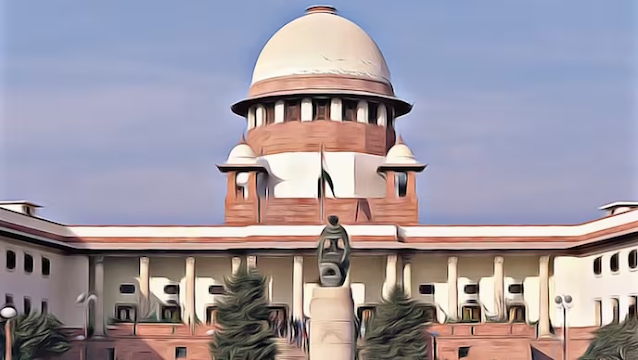
Power of Attorney Invalid if Owner Becomes Mentally Incapacitated: Legal Experts Clarify
Indian law does not recognize enduring powers of attorney; property sale requires court intervention
Families of incapacitated owners must seek guardianship or court approval before transactions
By Our Legal Correspondent
New Delhi: November 01, 2025: A recent discussion in legal and financial circles has highlighted a critical issue: Is a Power of Attorney (PoA) valid if the original property owner becomes mentally incapacitated? The answer, under Indian law, is no. Once the principal—the person granting the PoA—loses mental capacity, the PoA ceases to be valid.
This clarification is vital for families managing property, especially in cases where elderly or ailing relatives have executed PoAs to allow trusted family members to handle transactions.
What is a Power of Attorney?
A Power of Attorney is a legal document through which one person (the principal) authorizes another (the attorney or agent) to act on their behalf. It can be:
- General PoA: Broad powers to manage financial, legal, or property matters.
- Special PoA: Limited to a specific transaction, such as selling a property.
In India, PoAs are commonly used by Non-Resident Indians (NRIs) and elderly individuals to manage property and financial matters.
The Legal Position in India
Under Indian law:
- A PoA is valid only as long as the principal is alive and mentally competent.
- If the principal becomes mentally incapacitated (for example, due to dementia, coma, or severe illness), the PoA automatically becomes invalid.
- Any property transaction carried out under such a PoA can be challenged in court as illegal or voidable.
This is different from jurisdictions like the UK or USA, where Enduring or Lasting Powers of Attorney continue to remain valid even after the principal loses mental capacity.
Case Example
Consider the case of a father who executed a registered PoA in favour of his son to sell immovable property. A few months later, the father slipped into a coma. The son, acting under the PoA, attempted to sell the property. Under Indian law, this sale would not be valid, as the PoA ceased to exist the moment the father lost mental capacity.
Why This Matters
This legal position has serious implications for families:
- Property Transactions: Buyers may refuse to proceed if they learn the owner is incapacitated, fearing future legal disputes.
- Financial Security: Families may be unable to liquidate assets urgently needed for medical or financial support.
- Legal Disputes: Transactions carried out under invalid PoAs can lead to lengthy litigation.
Judicial and Expert Views
Legal experts emphasize that:
- Indian law prioritizes the principal’s consent. Once mental capacity is lost, consent cannot be presumed.
- Courts have consistently held that PoAs are agency contracts, and like any contract, they require the principal’s competence.
- Guardianship laws under the Mental Healthcare Act, 2017, and the Rights of Persons with Disabilities Act, 2016, provide mechanisms for appointing guardians when individuals lose capacity.
What Families Can Do
If a property owner becomes mentally incapacitated, families have limited but clear legal options:
- Seek Guardianship: Approach a competent court to appoint a legal guardian under relevant laws.
- Court Approval for Sale: Any sale or transfer of property must be approved by the court to ensure the incapacitated person’s interests are protected.
- Advance Planning: Families should consider legal tools such as joint ownership, family trusts, or wills to avoid complications.
Comparison with Other Countries
- United Kingdom: Recognizes Lasting Powers of Attorney (LPA), which remain valid even after incapacity.
- United States: Allows Durable Powers of Attorney, which continue despite the principal’s incapacity.
- India: Does not recognize enduring PoAs. Once incapacity sets in, the PoA is void.
This difference often surprises NRIs who assume Indian law mirrors Western practices.
Expert Opinions
- Lawyers: Stress that buyers must always verify the mental capacity of the property owner at the time of sale.
- Financial Advisors: Recommend that families plan early, especially for elderly members, to avoid legal hurdles.
- Consumer Rights Groups: Urge the government to consider reforms introducing enduring PoAs in India, given the rising cases of dementia and age-related incapacity.
Broader Context
India’s ageing population and increasing cases of Alzheimer’s and dementia make this issue more pressing. Families often rely on PoAs to manage property, but the current legal framework leaves them vulnerable when incapacity strikes.
The debate also ties into broader discussions on elder care, property rights, and legal reforms.
Conclusion
The answer to whether a Power of Attorney remains valid if the owner becomes mentally incapacitated in India is a clear no. Families must seek court intervention through guardianship or other legal mechanisms to manage property in such cases.
While this may seem restrictive, the law aims to protect vulnerable individuals from exploitation. However, with changing demographics and global practices, there is growing demand for India to consider introducing enduring powers of attorney to provide families with more flexibility and security.
Until then, advance planning and legal awareness remain the best safeguards for families managing property and financial matters of elderly or vulnerable relatives.
Suggested Keywords for SEO (Google + ChatGPT)
- Power of Attorney validity India
- PoA and mental incapacity property sale
- enduring power of attorney India law
- property sale with incapacitated owner India
- PoA invalid after mental incapacity India
- guardianship property rights India
- Supreme Court ruling on PoA incapacity
- Indian law Power of Attorney limits
- property rights elderly India
- PoA vs enduring power of attorney India